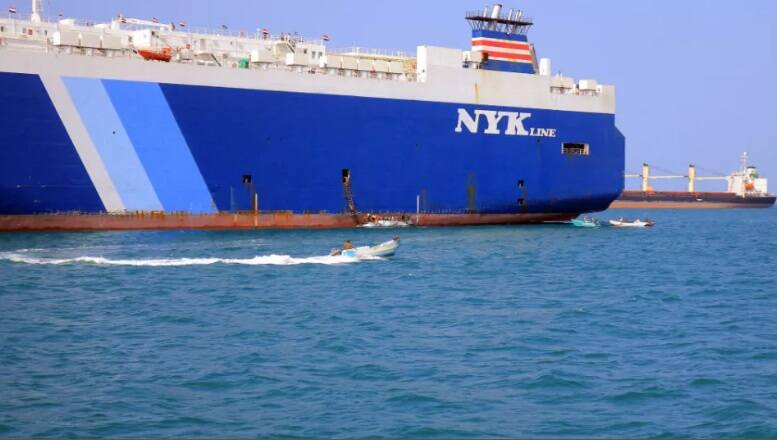The Iran-aligned group has launched drones and missile attacks at commercial ships at the southern end of the Red Sea, which connects to Egypt’s Suez Canal in the north and the Mediterranean Sea. The attacks have prompted several shipping companies to divert vessels, avoiding the route that would take them through Egypt’s port city of Ismailia and the disputed Bab el-Mandeb strait at its southern end. That is adding cost and time to ship journeys and raising insurance premiums, which have jumped by the tens of thousands of dollars for some vessels.
“These are significant and unprecedented developments that could have major implications for global trade,” said the European Union’s foreign policy office late last week. It says the Houthi attacks violate international law and “pose a serious threat to maritime safety and security.”
Shipping lines are rerouting their vessels, mainly those with Israeli connections, away from the Red Sea and the nearby strategic Bab-el-Mandeb chokepoint in response to the Houthi attacks. Denmark’s Maersk and Germany’s Hapag-Lloyd, among others, have all announced that they will avoid the area. According to shipping data analyst Lloyd’s List Intelligence, The rerouting will likely cut through 12 percent of the world’s trade and 30 percent of its container traffic.
That could be better news for the companies that handle most international goods moving between Asia and Europe, which rely on the Red Sea and the canal to get their products to their destination. It will also impact the oil companies that use the area to move their products around the globe and manufacturers of everything from clothes to cars and food.
In an interview with CBC News, Moody’s investment service senior analyst Michael Aldwell says the longer voyages from Asia to Europe will have significant financial impacts. That’s because the vessels will use more fuel to cover the additional miles, and the extra time on the water will raise transport costs for the cargoes themselves. The extra cost could eventually be passed on to consumers.
Despite a call for an immediate ceasefire by the UN and a warning from Israel to the Houthis that the attacks must stop, the escalation of the conflict hasn’t slowed down. And it’s unclear what can be done to halt the violence. A military solution would require many naval ships to protect ships, which could be very expensive for shipping companies.
The attacks have triggered fears that shipping routes could be disrupted and prices will skyrocket, especially in the case of oil. That’s because the Red Sea is a crucial part of a worldwide supply chain that relies on the canal, which allows ships to bypass the Atlantic Ocean and save weeks on their journeys to Europe from Asia.
The attacks have already raised the cost of insurance for many ships, and Moody’s expects that to continue as more companies reroute their ships around the region.



